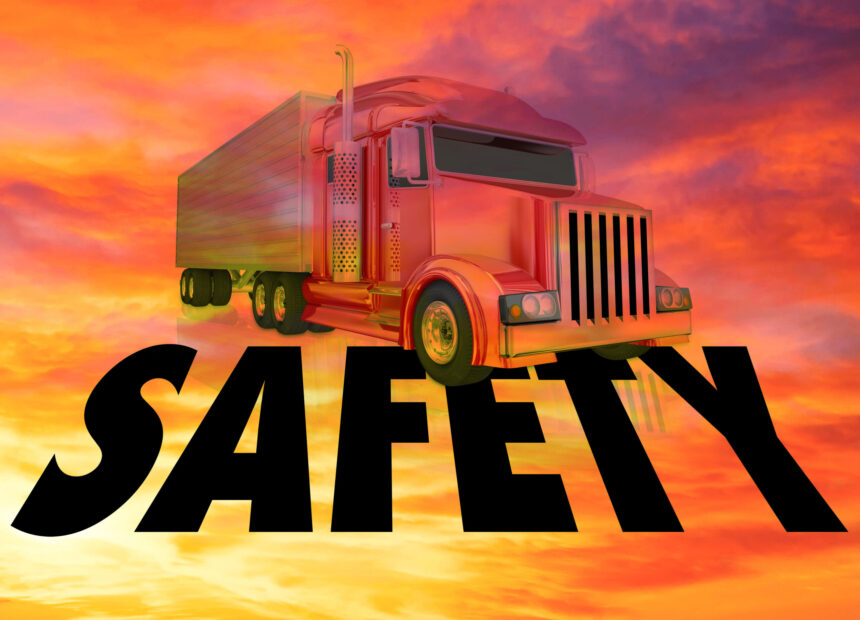Introduction to Road Safety and Truck Accidents
Truck accidents are a significant roadway concern, often leading to severe injuries and substantial property damage. Understanding and adhering to road safety measures is crucial for all drivers, particularly those operating heavy commercial vehicles. Increased traffic volume and the inherent risks associated with large trucks, such as longer stopping distances and reduced maneuverability, make preventing truck accidents a societal imperative. Engaging in this conversation, many affected individuals seek guidance from an automobile accident lawyer to navigate the aftermath of such accidents, and this need underscores the importance of road safety education and awareness.
National Policies for Truck Safety
Developing comprehensive national policies is a crucial strategy for enhancing the safety of our roadways. Agencies like the Federal Motor Carrier Safety Administration (FMCSA) play a vital role in enforcing regulations intended to prevent accidents and save lives. Standards concerning rest and service hours are designed to combat driver fatigue, a notorious cause of vehicular accidents. Through rigorous enforcement of these rules, the likelihood of fatigue-related incidents decreases. Nevertheless, adherence to these regulations entails cooperation from employers and drivers, ensuring that safety remains the top priority over productivity pressures.
Impact of Road Infrastructure on Truck Accidents
Well-designed and maintained road infrastructure can profoundly impact the occurrence of truck accidents. Highways, bridges, and tunnels, specifically engineered to accommodate trucks’ unique dimensions and weight, can help prevent many common types of accidents. Factors such as grade, curvature, and lane width must be carefully considered to provide truck drivers with a safe operating environment. Transport planners need to collaborate with engineers in designing infrastructure that not only withstands heavy truck traffic but also incorporates safety features such as adequate signage, guardrails, and appropriate lighting to support driver vigilance.
Technological Advances in Truck Safety
Innovation in truck safety technology promises to reduce the likelihood of on-road accidents. Sensors and alarms that constitute collision avoidance systems help alert drivers to potential hazards, while stability control technology can prevent rollovers. Electronic logging devices (ELDs) help ensure compliance with regulated service hours and reduce crashes due to driver fatigue. Moreover, in-cab video systems, reported by sources like the Insurance Institute for Highway Safety News, offer an unparalleled view into driving habits, providing opportunities for coaching and improving safety practices.
The Human Element: Training and Education for Truck Drivers
Driver training and continued education are cornerstone elements of truck safety. While technology plays a role in accident prevention, well-trained drivers equipped with best practices are indispensable. Initial CDL training lays the foundation for understanding the handling of heavy vehicles. It is often supplemented with ongoing safety courses that inform drivers about new regulations and refresh their skills. Companies that invest in regular training protect their employees and cargo and contribute positively to general road safety for everyone.
The Significance of Load Securement in Truck Safety
The importance of securement in trucking operations cannot be overstated. Incorrectly secured cargo can lead to distribution imbalances that directly affect a vehicle’s stability and maneuverability, increasing the risk of accidents. There are established best practices and equipment for securing loads that drivers and freight handlers must abide by, including tie-downs, load bars, and appropriate fastening materials. Regular inspections and adherence to these regulations are mandatory steps in promoting road safety and reducing the number of preventable incidents related to cargo securement failures.
Personal Injury Law and Truck Accidents
The interplay between truck accidents and personal injury law is significant. For individuals impacted by such incidents, understanding the legal framework is essential. Accidents involving trucks often result in complex litigation, given the severity of injuries and the multitude of potentially liable parties, from drivers to trucking companies. Whether consulting with an attorney proactively or after an incident, being informed on one’s legal rights and the intricacies that define liability and compensation can make a crucial difference in pursuing fair outcomes following truck accidents.
Emergency Response and Truck Accidents
A quick and efficient emergency response can be the difference between life and death in a truck accident. The role of first responders, who must often navigate challenging situations at such scenes, is paramount. Companies operating truck fleets have a responsibility to prepare contingency plans for emergencies. These plans include clear communication channels, safety equipment readiness, and personnel training in efficient emergency response. Collaboration with local emergency services can enhance response times and outcomes for all involved.
Preventive Measures for Individual Drivers to Avoid Truck Accidents
On an individual level, drivers can adopt various strategies to minimize the risk of being involved in a truck accident. Heightened situational awareness is critical – paying close attention to the behaviors of truck drivers and anticipating their actions can avoid many collisions. Defensive driving courses provide motorists with valuable tactics for navigating roads shared with large trucks, emphasizing the unpredictability of such vehicles. Simple measures, like maintaining safe following distances and being mindful of a truck’s blind spots, also prevent accidents. Ultimately, every driver’s commitment to safe driving contributes to a safer community on our roads.



